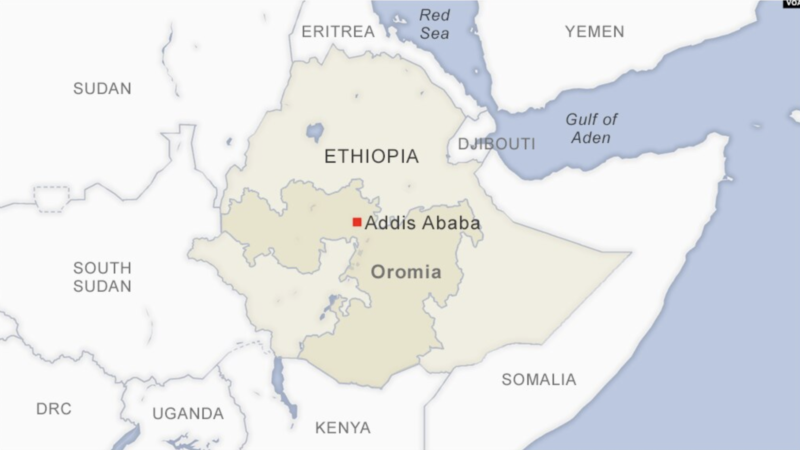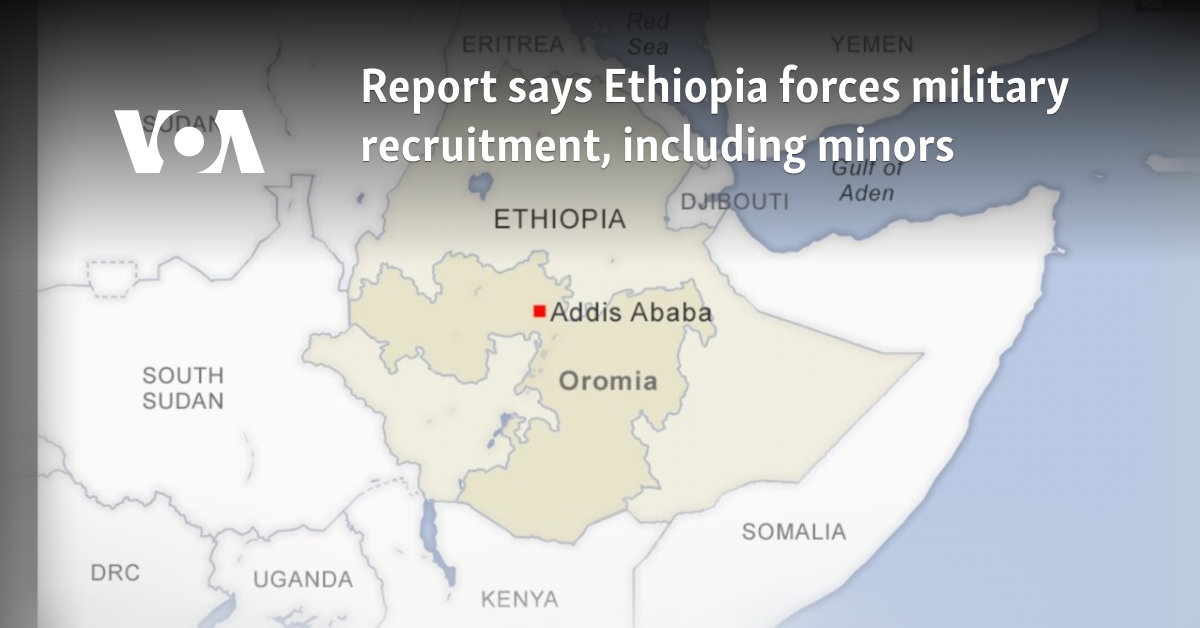This website uses cookies so that we can provide you with the best user experience possible. Cookie information is stored in your browser and performs functions such as recognising you when you return to our website and helping our team to understand which sections of the website you find most interesting and useful.


A 29-year-old day laborer in Shashemene, a city in Ethiopia’s Oromia region, was walking home from dinner with two friends one night in November when he heard a commotion. On the side of the road, perhaps 400 meters away, four men dressed in the uniforms of a local militia were shoving two young people into a police car.
The militiamen called out to the man and his friends. They didn’t wait to hear what came next. They turned and ran in the opposite direction. Two militiamen chased them on foot for a short distance before giving up.
The laborer, who asked to remain anonymous for reasons of personal safety, said news of Oromia government security forces and allied militias grabbing young people off the street for enlistment was all over town. He didn’t want to cross the so-called recruiters — or get pressed into military service himself.
“We were aware that some people were taken,” the man recently told VOA’s Horn of Africa Service. “So, when the militias called us, we didn’t stop. We ran, and I stayed overnight [with] my friends.”
As young as 11 years old
The incident reflects a worrisome reality in Oromia, where boys in their early teenage years are being forcibly recruited into military service to fight alongside Ethiopian federal government forces against rebel groups in the Amhara and Oromia regions, according to a recent report by the Ethiopian Human Rights Commission, or EHRC.
In one alarming case, the commission said it saw an 11-year-old boy who was detained for possible recruitment and being held at a Shashemen city detention center.
The state-affiliated body released a statement on Dec. 4, 2024, denouncing the arbitrary detention of children by Oromia security forces allied with the federal government.
The EHRC, which is mandated to monitor human rights conditions in the country, found that teenagers are being illegally detained and pressured to join the National Defense Force.
The commission said that during its monitoring and investigation in Shashemene, it saw numerous children under 18 sent to detention halls under the pretense of “military training.”
Of 32 youths being held at a detention center in the Halelu district to whom the commission talked, nearly half were either 15 or 16 years old. That’s where investigators also found the 11-year-old, the commission said.
Rebellions in two regions
Following a two-year rebellion in the Tigray region that ended in 2021, Ethiopia’s federal government army is now battling rebellions in the Amhara and Oromia regions.
The fighting in Amhara has been going on since 2023 when ethnic Amhara militias known as Fano refused a proposed government plan to disarm. The conflict in the Oromia region started in 2019 after rebels who returned from Eritrea took up arms, alleging marginalization of the ethnic Oromo.
Acting EHRC chief Rakeb Messele told VOA’s Horn of Africa Service that security forces are listening to the commission’s objections about the forced recruitment program — although the so-called “recruitment” has yet to stop.
“The Oromia region’s security forces told us they are visiting the detention centers and releasing those who are unwilling to join and those children under the age of 18,” she said. “Similarly, the Ethiopian National Defense Force is getting them released from the centers.”
Messele said the EHRC chose to label the situation as “arbitrary detention” rather than “forced military recruitment.” She told VOA it chose to refer to the practice that way because the government is taking necessary correction measures.
Nearly $200 to join the army
The EHRC report reveals the plight of families caught in the crossfire. “The Oromia region's administration and members of the security forces forcibly arrested many people, including children, to ‘join the defense army’ outside of the recruitment criteria specified by the Ministry of Defense,” the report states in Amharic.
One farmer from Kelem Wolega city, who requested anonymity for his safety, told VOA that two of his younger brothers are among those forcibly recruited.
“We are residents of Kelem Wolega Zone, Gidame District. Two of my brothers have been arrested,” he said. “More than 130 people have been taken from our kebele [administrative unit]."
A 15-year-old boy told the commission: “When we came back from school, an individual took us into a Bajaj [auto rickshaw], saying that he will give 25,000 Birr [equivalent to $198] to those who join the defense force. [They] then took us to an auditorium. ... But after we entered, we could not leave.”
Some parents say they were forced to pay for the return of their sons.
“In some areas of the region, they forced their families to pay large sums of money to release those arrested,” said the EHRC report.
“In some areas where EHRC conducted surveillance and investigation, in cooperation with the regional leaders, it has succeeded in freeing many people, including children and the mentally ill, who were arrested,” the report said.
'Recruiting children ... is prohibited'
Kumlachew Dagne, board director of InterAfrica Group, an independent nonprofit organization working on promoting peace and security in the Horn of Africa, told VOA that although Ethiopia is not a signatory of the international war crime law, the recruitment activities are unlawful.
Kumlachew said United Nations protocols “clearly state that during civil war, recruiting children for military purpose is prohibited.”
This violation, Kumlachew said, represents a blatant disregard for the rights of children and undermines efforts to protect vulnerable populations in conflict zones.
He called on the Ethiopian government to take immediate action to address the issue and uphold international conventions on arbitrary detention and child rights violations.
Ethiopia’s Ministry of Communications and Ministry of Defense have not responded to VOA requests for comment.
This story originated in VOA's Horn of Africa Service.



 Africana55 Radio
Africana55 Radio 
